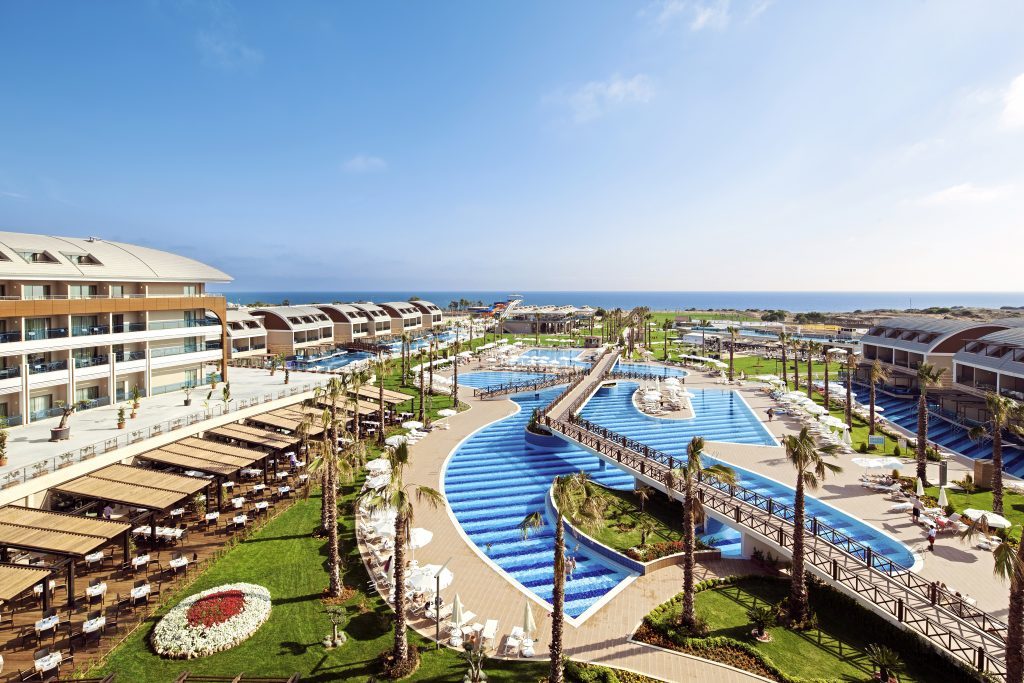Skift Take
The tour operator sees a bright future in selling more holidays that travelers can build on their own versus pre-packaged trips — and that includes offering them more brands.
Tour operator TUI is stepping up efforts to offer as wide a range as possible of holidays and activities to its customers, on top of its own directly controlled airline and resorts.
As demand soars, and it continues to fill some of the gap left by Thomas Cook, TUI wants to protect itself against adding too much of its own capacity, which could prove costly if jet fuel prices rise and other elements are hit by inflation.
That’s despite the tempting offer to scale up for what’s expected to be a strong winter season.
“We have to be careful because I always say the last beer you drink is the problem, not the first beer you drink, when you get a headache,” said chief financial officer Sebastian Ebel on the hedging strategy.
“Yes, we may take the last €10 million ($10.2 million) profit chance, but you can easily lose €50 million because you have too much profitability, and especially long haul could be more under pressure because the fuel part of the whole package is, of course, bigger,” he added, speaking during an earnings call Wednesday.
Ebel, who replaces Fritz Joussen as CEO starting in October, said TUI wants to grow but acknowledged the operator also needed to be even more agile than it has in the past.
“Market share itself can be a dangerous thing because if you increase the capacity too much, and the market is not there, you yield. And there, we have to be really careful. If you do dynamic packaging, you don’t care because the yielding comes from the supplier, and he has to take the burden,” he said.
TUI has “broadened the product portfolio” for its customers who are packaging accommodations-only and activities through its app.
“We see dynamic packaging has become more and more important,” Ebel said. “Germany, for example, who is the front-runner on this in our TUI ecosystem, in the last week did 25 percent of all sales products (by) dynamic package. We are in the process of rolling that out to the other markets in the next 12 months.” Dynamic packaging allows customers to build their own trips, rather than buying pre-packaged tours.
Activities Priority
Fortunately, suppliers are flocking to TUI, the company revealed during the call after it reported its third-quarter results — which were almost profitable, if it not for the recent delays and cancellations that hit Europe’s airports.
The company made a loss of $27 million on an underlying EBIT (earnings before interest and taxes) basis for the three months ended June 20, 2022. Costs arising from flight disruptions were $75 million.
TUI will now leverage its app to broaden its content, particularly for its tours and activities.
The operator said overall growth opportunities would be driven by the expansion of its TUI Musement tours and activities segment, which will benefit from both its integration as well as growth through third-party sales.
That division made its first profit since the pandemic began, with a profit of $14.1 million on an underlying EBIT basis. That was off $256 million in revenue for the quarter — up almost 900 percent compared to the $26.3 million revenue in the 2021 third quarter.
“We never had so many suppliers contacting us, they want to be on our platform,” Ebel said.
TUI also wants to sell more activities in its source markets, such as Germany and the UK, as well as in its sunnier destinations. Ebel added the goal was for the customer to not just book a two or three-week vacation every two years with TUI, but to book something once a month.
About 35 percent of its customers are booking an activity, and in the last few weeks Ebel said it had returned to pre-pandemic levels.
TUI’s cruise division had also returned to profitability, with a profit of $3 million on an underlying EBIT basis, and the good news would likely continue as Ebel said cruises were better protected against inflationary cost rises than other types of vacations due to more fixed-term contracts and the ability to reduce fuel consumption by sailing at slower speeds.
“We are very happy and actually surprised by the strong recovery,” Ebel said.
TUI was less content with its flights, especially out of the UK.
“To make it very clear, even (though) we only canceled 200 flights, these were 200 flights too many (and) every flight meant 189 people impacted. And you read all about in the press and that is not acceptable,” he added.
In its results, TUI pointed out that delays of over three hours were significant in the UK. They incur a payout of between $250 and $600 per passenger. The European legislation, EC261, still applies despite the UK having left the European Union. That could change however, with the Czech Republic — the European Union’s new president country — hinting it could revive discussions around compensation rules.
Meanwhile, despite the ongoing labor crisis, TUI has staffed back up by nearly 30 percent. In the nine months to June 30, 2022 it had 60,058 employees, compared to 46,518 staff in the nine months to June 30, 2021.
The Daily Newsletter
Our daily coverage of the global travel industry. Written by editors and analysts from across Skift’s brands.
Have a confidential tip for Skift? Get in touch
Tags: earnings, europe, flight delays, germany, tui, tui group, tui musement
Photo credit: TUI reported a loss of $27 million for the three months ended June 20, 2022. TUI Group
